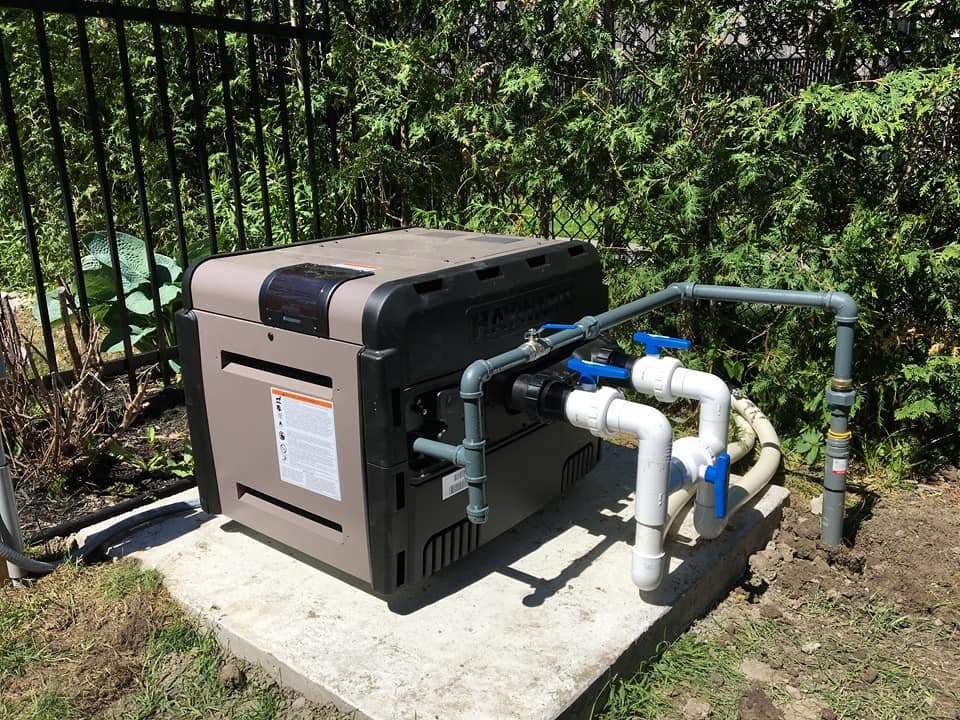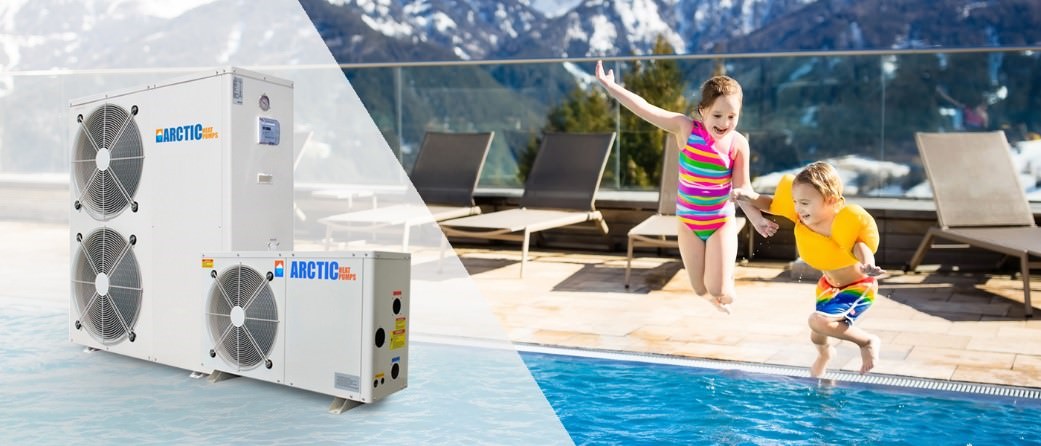With the winter months fast approaching, swimming in pools won’t be as common as it was during other months. Such a reaction is common for folks who don’t have a pool heating system. Modern pool heat pumps can heat your pool, making it warm enough for you to take a dip.
If you’re considering getting one of these pool heat pumps, you must be well-informed before deciding. Therefore, this article will be the ultimate guide to help you choose the best energy-efficient pool heat pump system. You’ll also learn how these heat pumps can reduce your energy costs and environmental impact.
Introduction to Pool Heat Pumps and Their Benefits
Pool heat pumps are devices designed to gather heat from the air around them and then move it to the pool, heating the water. This process uses less energy than electric or gas heaters. These devices are usually installed outside since they draw in air from their surroundings.
Pool heat pumps are gaining widespread acceptance and usage because of their numerous benefits, such as:
- Energy Efficiency: These pumps use less energy, which makes them energy efficient. This, in turn, makes them a cost-effective pool heating option since you won’t have to spend so much on energy bills when you use them.
- All-Year-Round Usage: These heat pumps allow you to use your pool even during winter when it is naturally cold.
- Environmentally Friendly: Compared to gas heaters that use propane or natural gas, these electric heat pumps don’t emit substances that can hurt the environment.

How Heat Pumps Work: Energy Efficiency and COP Explained
The operating technology used by heat pumps is the same as that used by air conditioners or refrigerators. The water pump in the device sucks in water from the pool, which then passes through the filter and heat exchanger.
At the same time, warm air from the surroundings enters the device and moves through the fan and evaporator. When the air reaches the evaporator, the refrigerant absorbs the heat and transforms it into gas, which is passed through the compressor.
The compressor heats this gas before moving it to the condenser and then to the heat exchanger, where it mixes with the water that was sucked in. Finally, the heated water is sent to the pool. This cycle is repeated over and over again.
Energy efficiency refers to how efficiently the device uses energy and is measured by the pool heat pump’s Coefficient of Performance (COP). COP measures heat transfer efficiency, which means that devices with higher COP ratings are more energy efficient.

Comparing Heat Pumps to Gas and Electric Heaters
Heat pumps work differently in terms of operational processes than gas and electric heaters. These eco-friendly heat pumps capture and transfer heat rather than generate it as heaters do. Due to this simple operational difference, the pumps use less energy.
They might be more expensive initially but are cost-effective in the long run. When you use electric heaters, you’ll need to pay electricity bills. If you opt for gas heaters, you have to continuously buy natural gas or propane.
Top Energy-Efficient Pool Heat Pump Models of 2024
To save you the stress of shopping around, we’ve compiled a list of the top energy-efficient pool heat pump models of 2024. All of these models have Energy Star certification. Let’s take a look at their features and specifications.
Arctic Titanium Heat Pump 060ZA/B
The Artie Titanium Heat Pump 060ZA/B is best suited for temperate climates. It has 95,500 BTU and a capacity of 28 KW. It is suitable for pools, hot tubs, and spas. Its control feature lets you vary between cool and hot depending on the weather.
Arctic Titanium Heat Pump 015ZA/B
This DC converter is ideal for hot areas because it can heat and cool your pool. The Artic Titanium Heat Pump 015ZA/B can achieve temperatures as low as -4°F (-20°C), allowing you to enjoy a cool swim during the summer. It has 23,000 BTU, 6.7KW capacity, and a COP of 3.6-13.
Arctic Heat Pump 035ZA/B.
With 29,000 BTU, the Arctic Heat Pump 035ZA/B is ideal for frigid climates. Although it can heat and cool, this climate-specific pool heating system performs best during the colder months and locations. When combined with a suitable pool size, you can save more than 70% on energy.
Maintenance Tips to Maximize Efficiency
Although pool heat pumps are designed to function with little maintenance, this important responsibility shouldn’t be neglected. Below are some maintenance tips you can perform yourself to maximize energy efficiency.
- Check Refrigerant Levels: Time and again, you should ensure you check the refrigerant levels. Always confirm that they are not lower or higher than the recommended range.
- Clean the Filters: Carrying out this task will not only preserve the life of the machine, but it will also enhance its efficiency.
- Examine Electrical Connections: Pay close attention to the controls and connections to see if it is damaged or not.
Conclusion
Energy-efficient heat pools are making life more enjoyable for people who still want to swim during the winter. While they might seem pricey at first, the amount you will save on energy bills easily makes up for the initial cost. With the current advanced models, there’s never been a better time to invest in energy-efficient pool heating.


